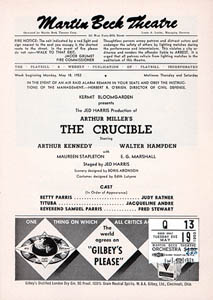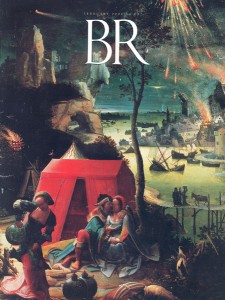History with a Past
Sidebar to: Reading David in Genesis
The accompanying article attempts to uncover the political agenda of the Torah. The narrative describes an earlier historical period, but imbedded into the narrative is the political message of an author from a later period. Obviously, the biblical material can be read without its later political agenda, simply as great literature or as insightful theology or as embellished history.

However, great literature that deals with historical events but also reflects a contemporary political agenda has been a common phenomenon throughout history. Probably the example best known to modern readers, especially Americans, is Arthur Miller’s The Crucible. This is an outstanding play and a great work of literature. But as everyone who sees or reads the play is keenly aware, it is also a strong contemporary political statement. Miller tells the story of the witch trials that occurred in 17th-century Salem, Massachusetts. But the story is told through the filter of the McCarthyism of the 1950s, of which Miller himself was a target. The story is set in the past, but it tells us more about the present.
Another excellent example is the motion picture and television series M*A*S*H.
Already a library member? Log in here.
Institution user? Log in with your IP address.

